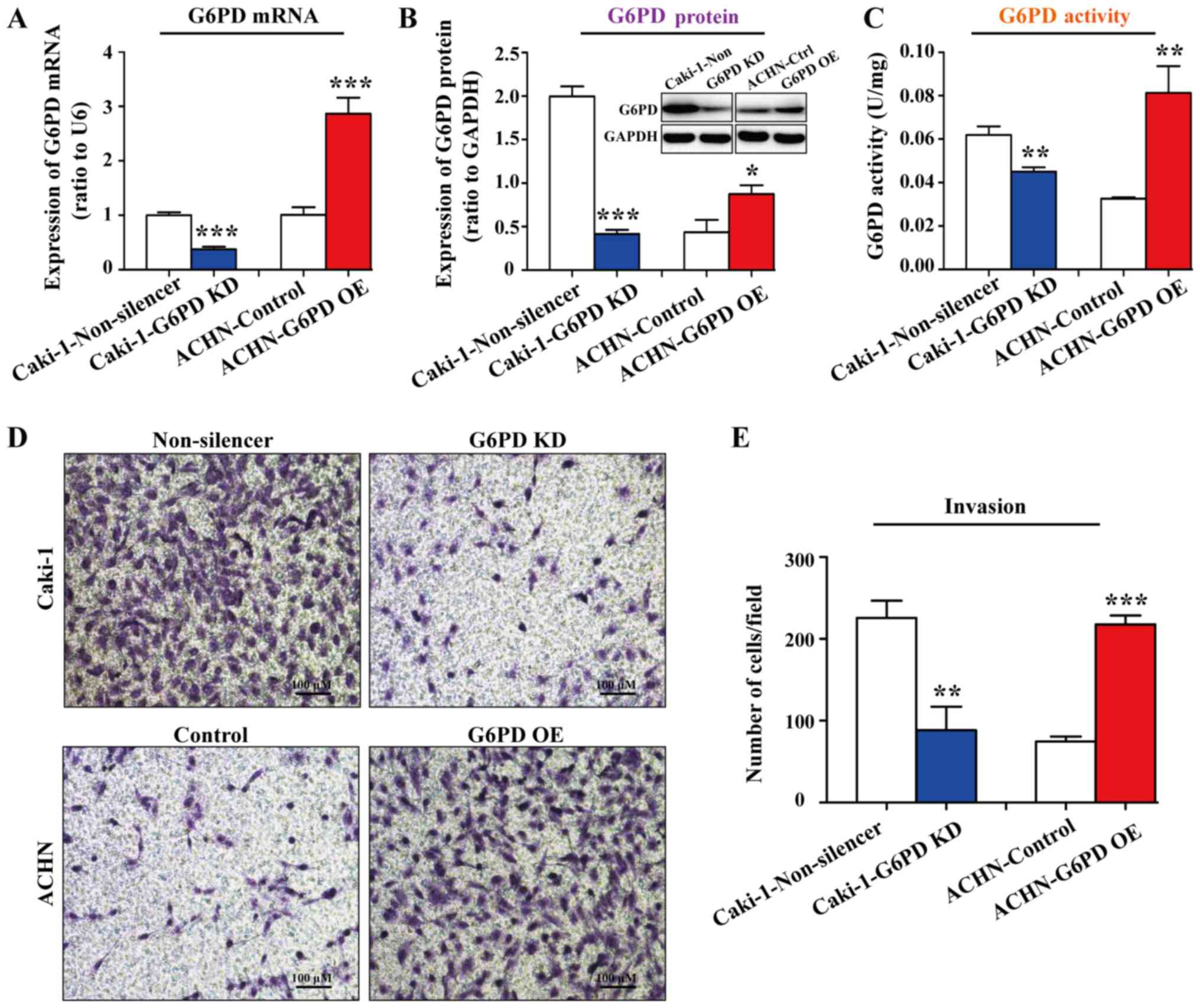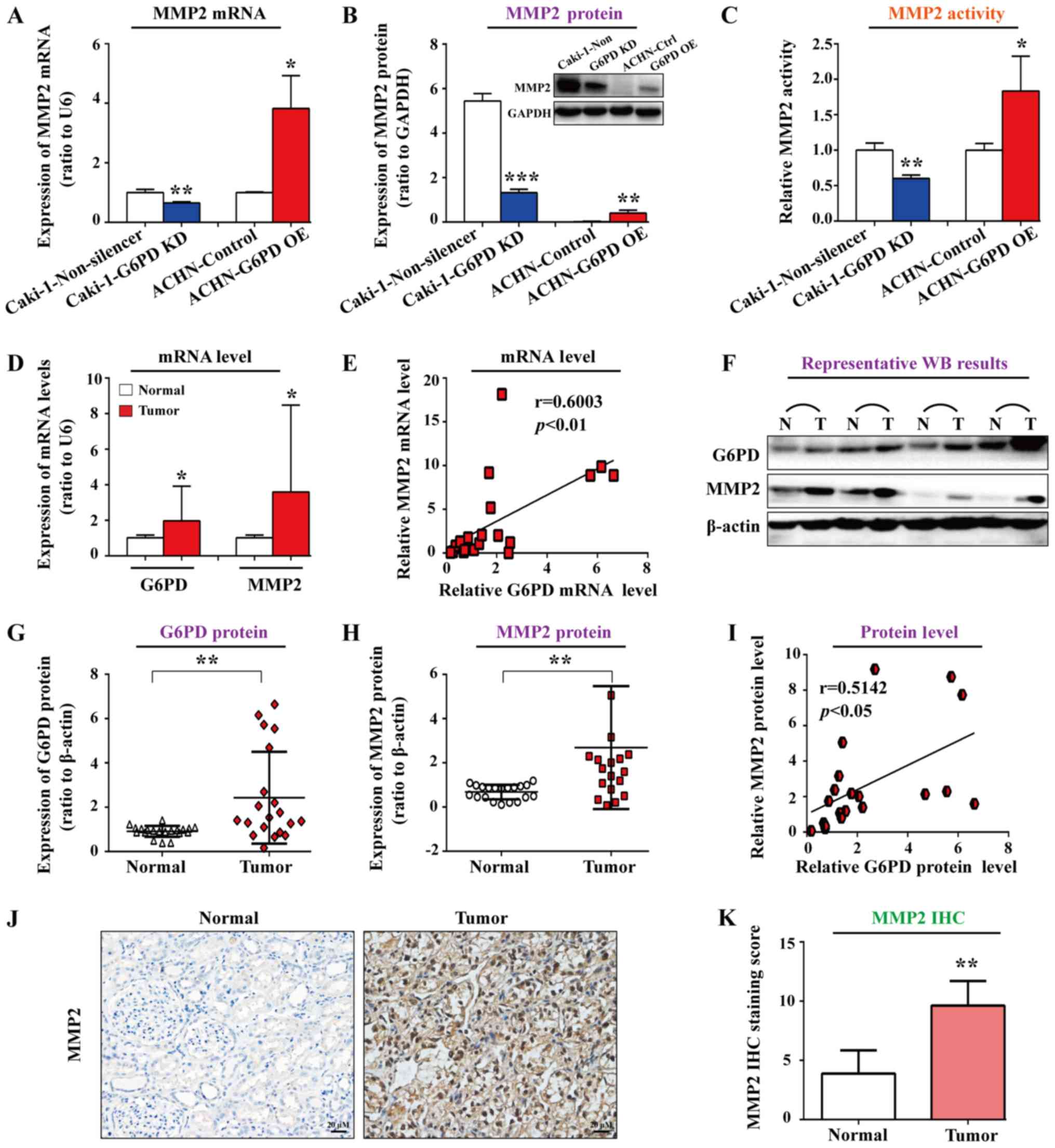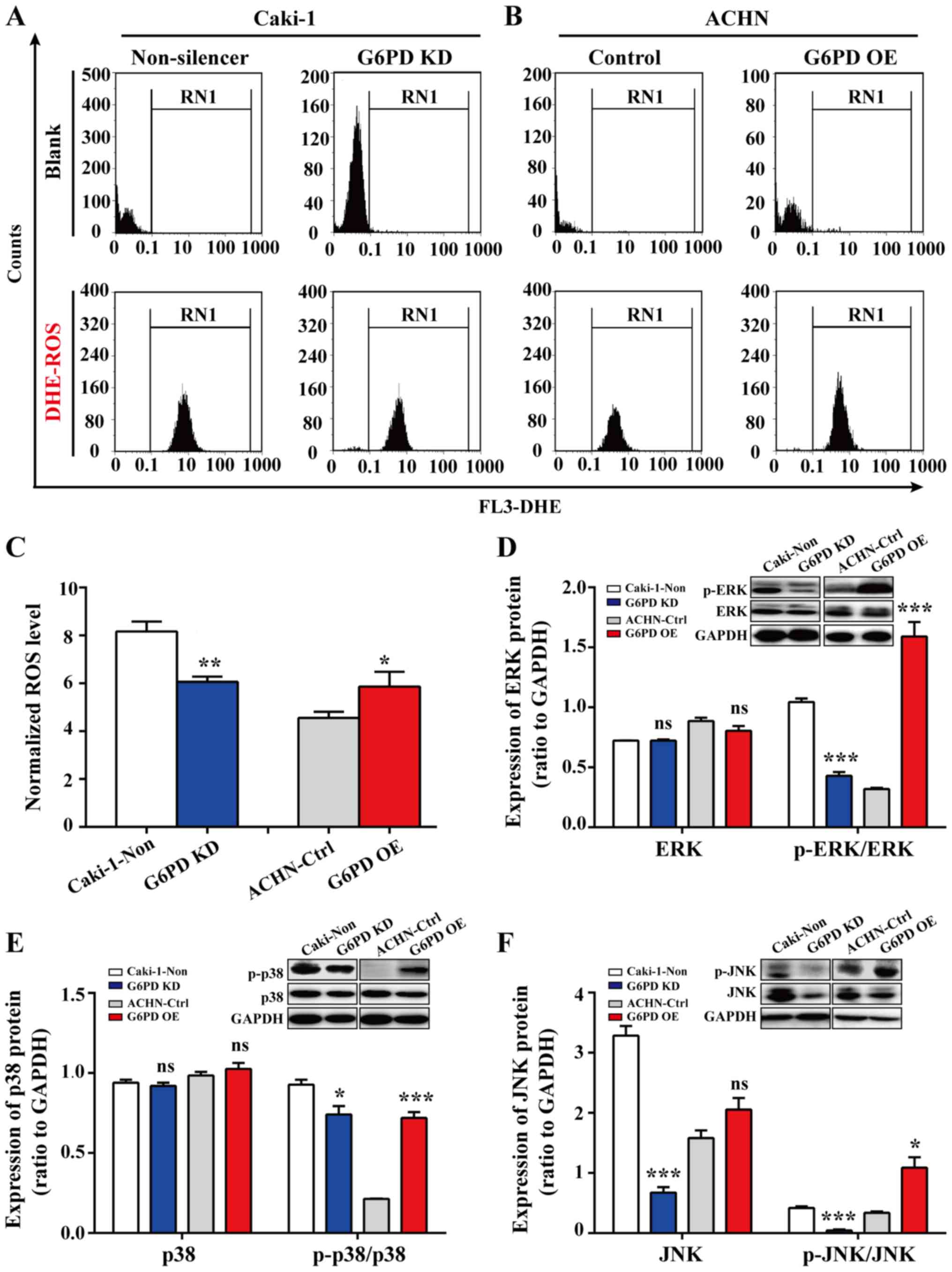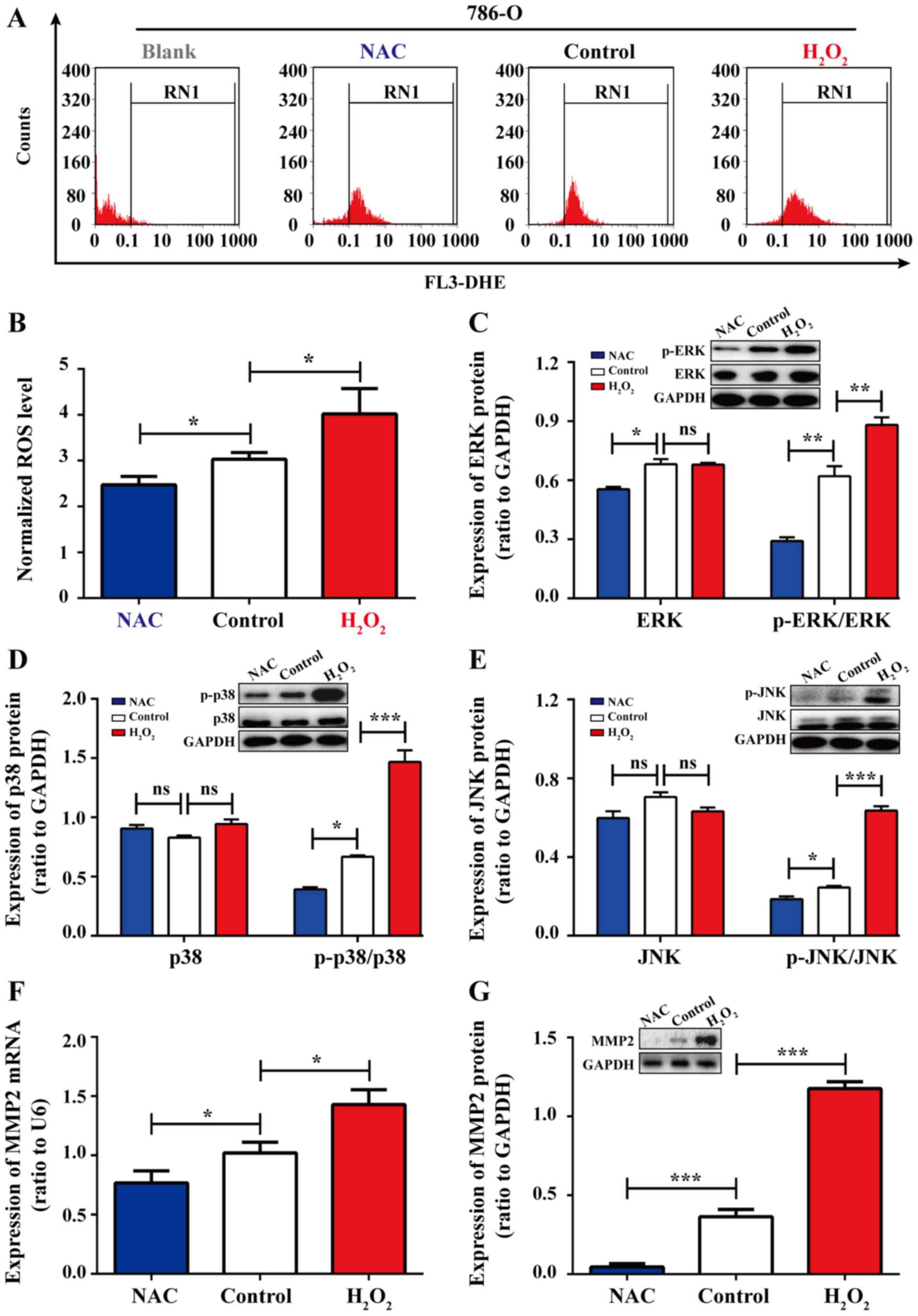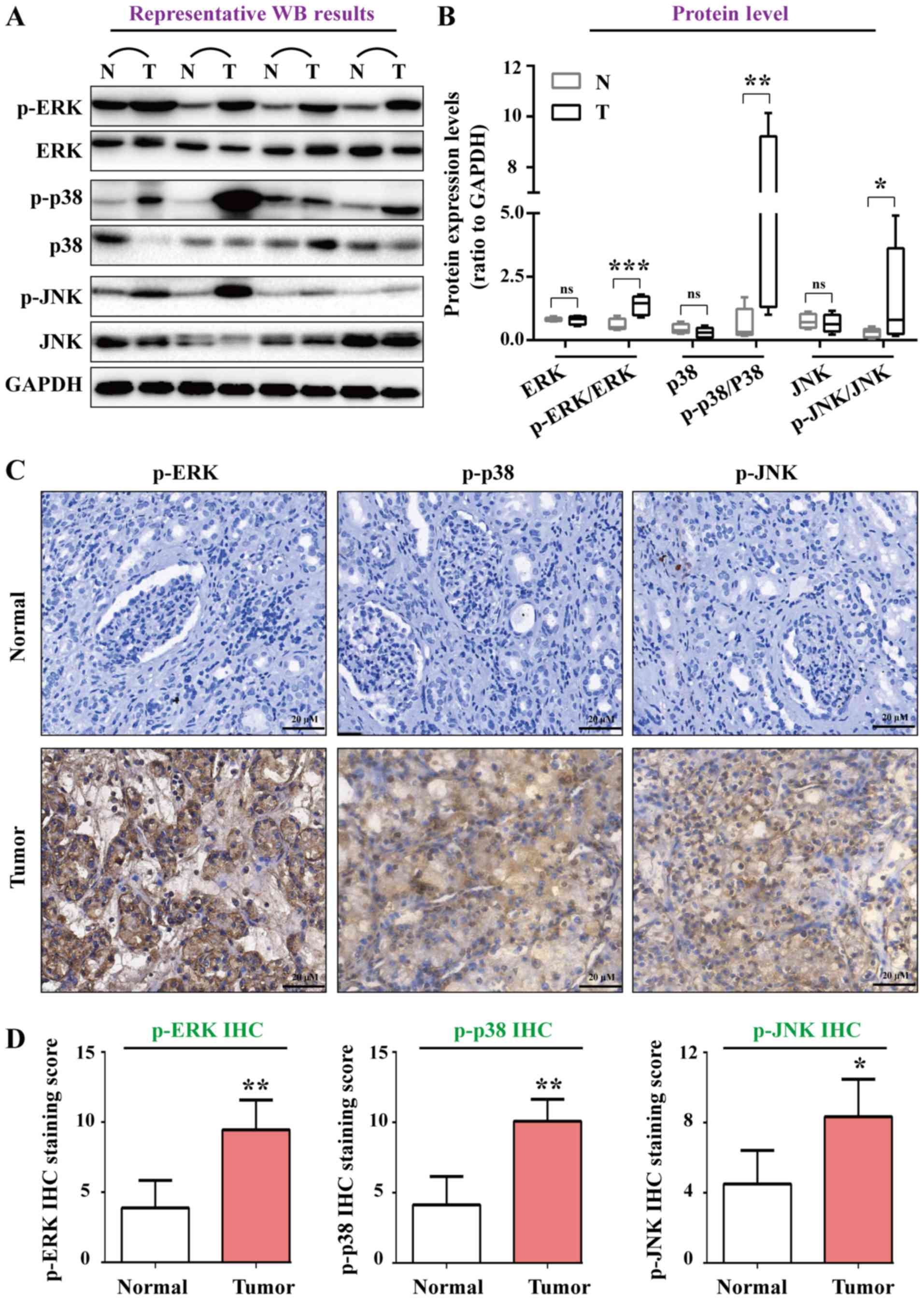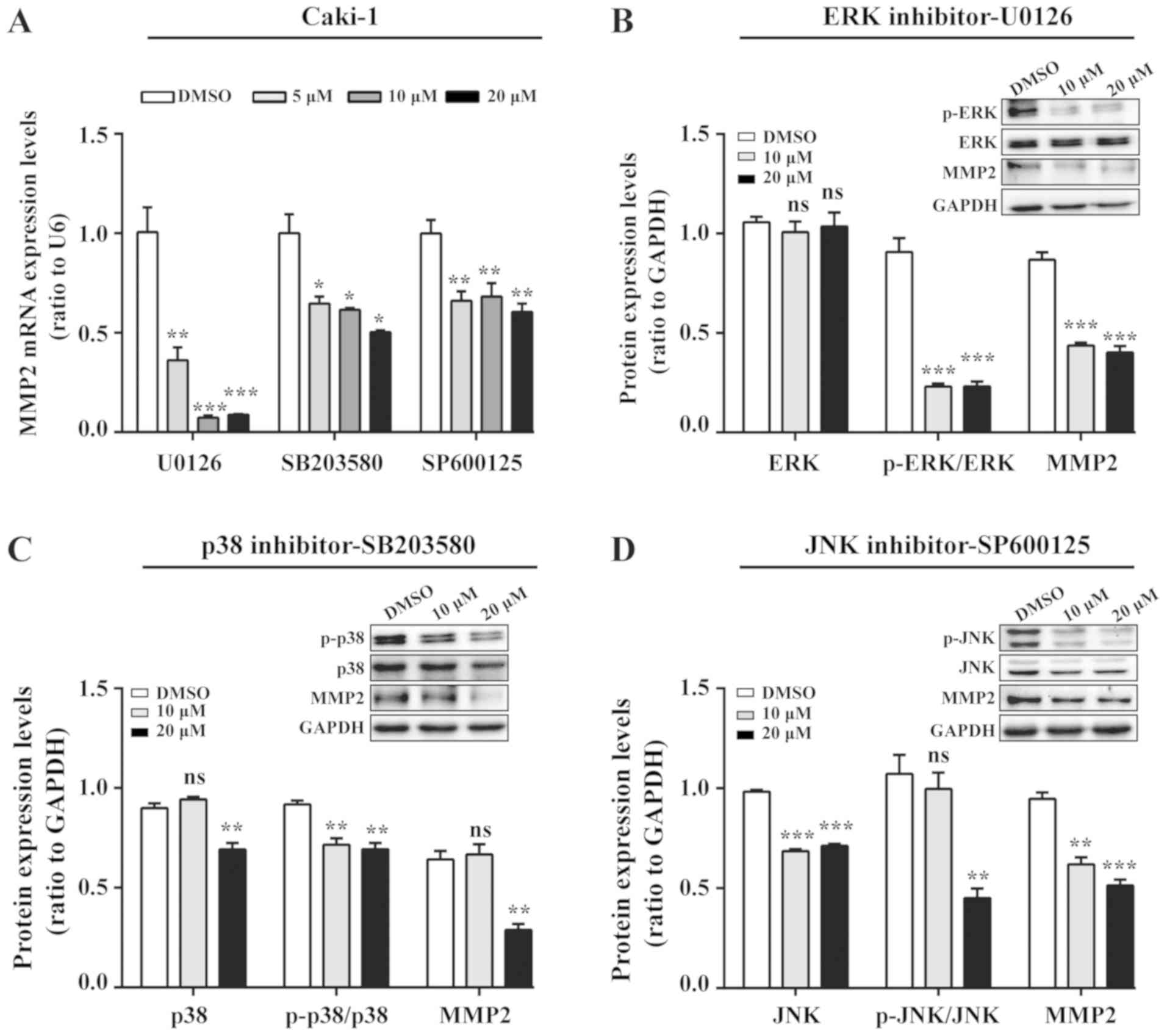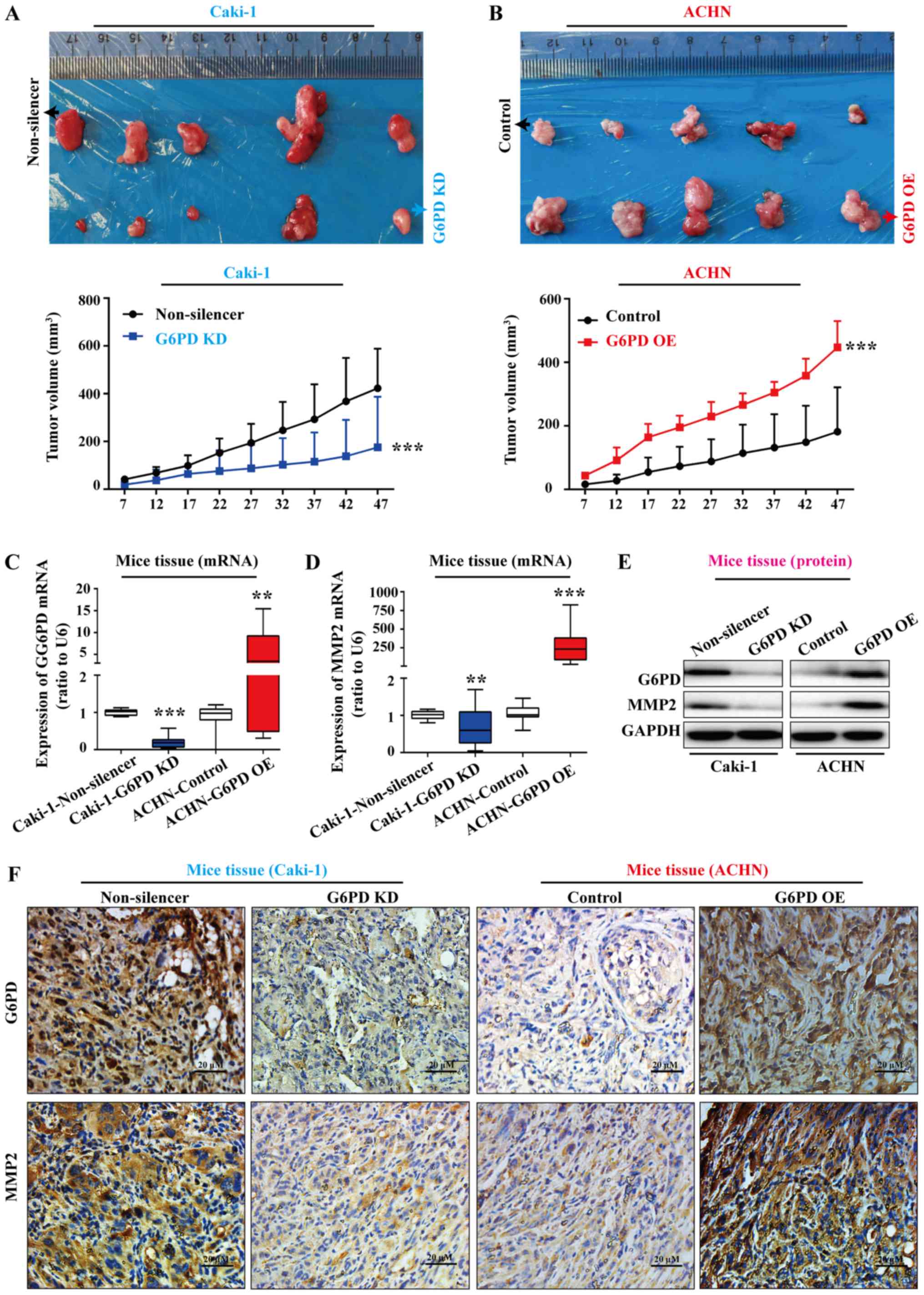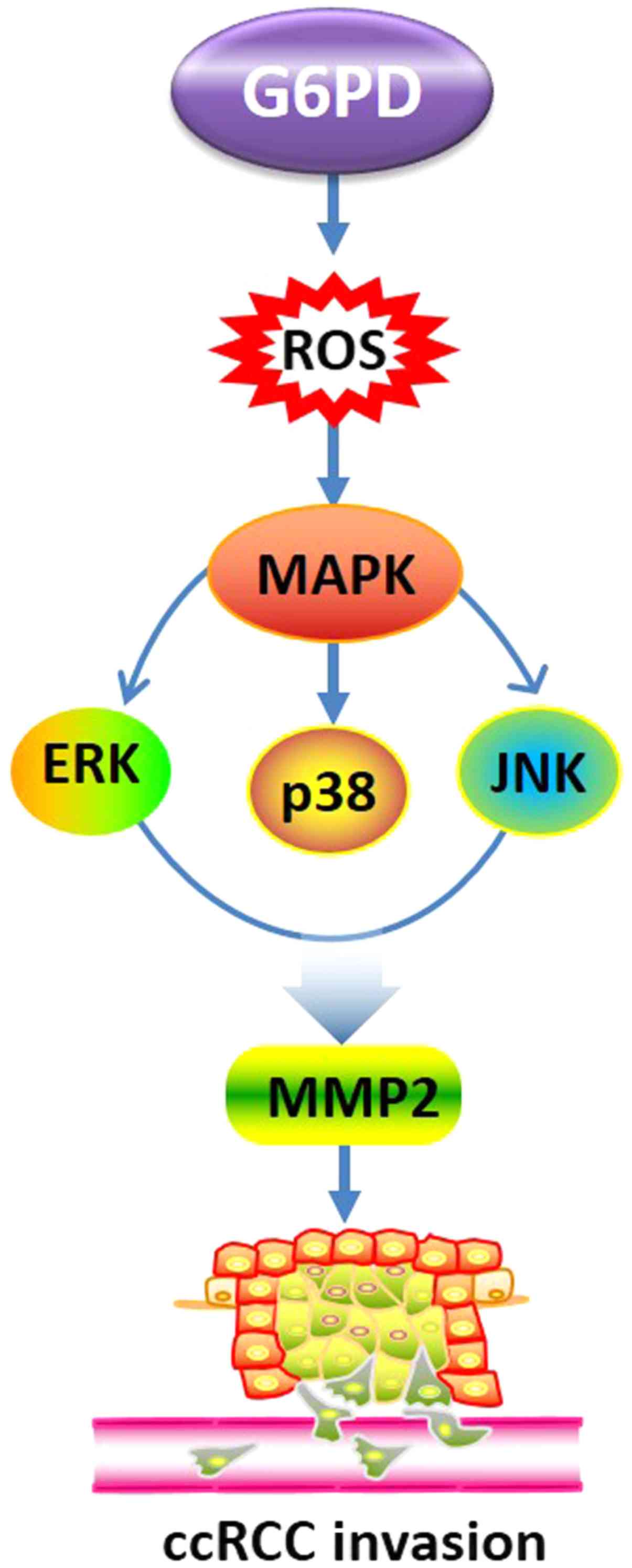|
1
|
Global Burden of Disease Cancer
Collaboration; Fitzmaurice C, Akinyemiju TF, Al Lami FH, Alam T,
Alizadeh-Navaei R, Allen C, Alsharif U, Alvis-Guzman N, Amini E, et
al: Global, regional, and national cancer incidence, mortality,
years of life lost, years lived with disability, and
disability-adjusted life-years for 29 cancer groups, 1990 to 2016:
A systematic analysis for the global burden of disease study. JAMA
Oncol. 4:1553–1568. 2018. View Article : Google Scholar : PubMed/NCBI
|
|
2
|
Global Burden of Disease Cancer
Collaboration; Fitzmaurice C, Abate D, Abbasi N, Abbastabar H,
Abd-Allah F, Abdel-Rahman O, Abdelalim A, Abdoli A, Abdollahpour I,
et al: Global, regional, and national cancer incidence, mortality,
years of life lost, years lived with disability, and
disability-adjusted life-years for 29 cancer groups, 1990 to 2017:
A systematic analysis for the global burden of disease study. JAMA
Oncol. 5:1749–1768. 2019. View Article : Google Scholar :
|
|
3
|
Siegel RL, Miller KD and Jemal A: Cancer
statistics, 2020. CA Cancer J Clin. 70:7–30. 2020. View Article : Google Scholar : PubMed/NCBI
|
|
4
|
Gupta K, Miller JD, Li JZ, Russell MW and
Charbonneau C: Epidemiologic and socioeconomic burden of metastatic
renal cell carcinoma (mRCC): A literature review. Cancer Treat Rev.
34:193–205. 2008. View Article : Google Scholar : PubMed/NCBI
|
|
5
|
Chang Y, Li N, Yuan W, Wang G and Wen J:
LINC00997, a novel long noncoding RNA, contributes to metastasis
via regulation of S100A11 in kidney renal clear cell carcinoma. Int
J Biochem Cell Biol. 116:1055902019. View Article : Google Scholar : PubMed/NCBI
|
|
6
|
Ferronika P, Hof J, Kats-Ugurlu G, Sijmons
RH, Terpstra MM, de Lange K, Leliveld-Kors A, Westers H and Kok K:
Comprehensive profiling of primary and metastatic ccRCC reveals a
high homology of the metastases to a subregion of the primary
tumour. Cancers (Basel). 11:E8122019. View Article : Google Scholar
|
|
7
|
Hanahan D and Weinberg RA: Hallmarks of
cancer: The next generation. Cell. 144:646–674. 2011. View Article : Google Scholar : PubMed/NCBI
|
|
8
|
Poulain L, Sujobert P, Zylbersztejn F,
Barreau S, Stuani L, Lambert M, Palama TL, Chesnais V, Birsen R,
Vergez F, et al: High mTORC1 activity drives glycolysis addiction
and sensitivity to G6PD inhibition in acute myeloid leukemia cells.
Leukemia. 31:2326–2335. 2017. View Article : Google Scholar : PubMed/NCBI
|
|
9
|
Wen SS, Zhang TT, Xue DX, Wu WL, Wang YL,
Wang Y, Ji QH, Zhu YX, Qu N and Shi RL: Metabolic reprogramming and
its clinical application in thyroid cancer. Oncol Lett.
18:1579–1584. 2019.PubMed/NCBI
|
|
10
|
Jiao Y, Li Y, Jiang P, Han W and Liu Y:
PGM5: A novel diagnostic and prognostic biomarker for liver cancer.
PeerJ. 7:e70702019. View Article : Google Scholar : PubMed/NCBI
|
|
11
|
Duan JJ, Cai J, Guo YF, Bian XW and Yu SC:
ALDH1A3, a metabolic target for cancer diagnosis and therapy. Int J
Cancer. 139:965–975. 2016. View Article : Google Scholar : PubMed/NCBI
|
|
12
|
Yang HC, Wu YH, Yen WC, Liu HY, Hwang TL,
Stern A and Chiu DT: The Redox role of G6PD in cell growth, cell
death, and cancer. Cells. 8:E10552019. View Article : Google Scholar : PubMed/NCBI
|
|
13
|
Pu H, Zhang Q, Zhao C, Shi L, Wang Y, Wang
J and Zhang M: Overexpression of G6PD is associated with high risks
of recurrent metastasis and poor progression-free survival in
primary breast carcinoma. World J Surg Oncol. 13:3232015.
View Article : Google Scholar : PubMed/NCBI
|
|
14
|
Zhang Q, Yi X, Yang Z, Han Q, Di X, Chen
F, Wang Y, Yi Z, Kuang Y and Zhu Y: Overexpression of G6PD
represents a potential prognostic factor in clear cell renal cell
carcinoma. J Cancer. 8:665–673. 2017. View Article : Google Scholar : PubMed/NCBI
|
|
15
|
Nagashio R, Oikawa S, Yanagita K, Hagiuda
D, Kuchitsu Y, Igawa S, Naoki K, Satoh Y, Ichinoe M, Murakumo Y, et
al: Prognostic significance of G6PD expression and localization in
lung adenocarcinoma. Biochim Biophys Acta Proteins Proteom.
1867:38–46. 2019. View Article : Google Scholar
|
|
16
|
Zhang Q, Yang Z, Han Q, Bai H, Wang Y, Yi
X, Yi Z, Yang L, Jiang L, Song X, et al: G6PD promotes renal cell
carcinoma proliferation through positive feedback regulation of
p-STAT3. Oncotarget. 8:109043–109060. 2017. View Article : Google Scholar
|
|
17
|
Rhee SG: Cell signaling. H2O2, a necessary
evil for cell signaling. Science. 312:1882–1883. 2006. View Article : Google Scholar : PubMed/NCBI
|
|
18
|
Pelicano H, Carney D and Huang P: ROS
stress in cancer cells and therapeutic implications. Drug Resist
Updat. 7:97–110. 2004. View Article : Google Scholar : PubMed/NCBI
|
|
19
|
Fan TF, Wu TF, Bu LL, Ma SR, Li YC, Mao L,
Sun ZJ and Zhang WF: Dihydromyricetin promotes autophagy and
apoptosis through ROS-STAT3 signaling in head and neck squamous
cell carcinoma. Oncotarget. 7:59691–59703. 2016. View Article : Google Scholar : PubMed/NCBI
|
|
20
|
Morgan MJ and Liu ZG: Crosstalk of
reactive oxygen species and NF-κB signaling. Cell Res. 21:103–115.
2011. View Article : Google Scholar
|
|
21
|
Li G, Liao Y, Hu J, Lu L, Zhang Y, Li B
and An T: Activation of NF-κB pathways mediating the inflammation
and pulmonary diseases associated with atmospheric methylamine
exposure. Environ Pollut. 252(Pt B): 1216–1224. 2019. View Article : Google Scholar : PubMed/NCBI
|
|
22
|
Zhao W, Lu M and Zhang Q: Chloride
intracellular channel 1 regulates migration and invasion in gastric
cancer by triggering the ROS-mediated p38 MAPK signaling pathway.
Mol Med Rep. 12:8041–8047. 2015. View Article : Google Scholar : PubMed/NCBI
|
|
23
|
Wang C, Li P, Xuan J, Zhu C, Liu J, Shan
L, Du Q, Ren Y and Ye J: Cholesterol enhances colorectal cancer
progression via ROS elevation and MAPK signaling pathway
activation. Cell Physiol Biochem. 42:729–742. 2017. View Article : Google Scholar : PubMed/NCBI
|
|
24
|
Zhong WF, Wang XH, Pan B, Li F, Kuang L
and Su ZX: Eupatilin induces human renal cancer cell apoptosis via
ROS-mediated MAPK and PI3K/AKT signaling pathways. Oncol Lett.
12:2894–2899. 2016. View Article : Google Scholar : PubMed/NCBI
|
|
25
|
Kim EK, Jang M, Song MJ, Kim D, Kim Y and
Jang HH: Redox-mediated mechanism of chemoresistance in cancer
cells. Antioxidants (Basel). 8:E4712019. View Article : Google Scholar
|
|
26
|
Xian D, Lai R, Song J, Xiong X and Zhong
J: Emerging perspective: Role of increased ROS and redox imbalance
in skin carcinogenesis. Oxid Med Cell Longev. 2019:81273622019.
View Article : Google Scholar : PubMed/NCBI
|
|
27
|
Cai T, Kuang Y, Zhang C, Zhang Z, Chen L,
Li B, Li Y, Wang Y, Yang H, Han Q and Zhu Y: Glucose-6-phosphate
dehydrogenase and NADPH oxidase 4 control STAT3 activity in
melanoma cells through a pathway involving reactive oxygen species,
c-SRC and SHP2. Am J Cancer Res. 5:1610–1620. 2015.PubMed/NCBI
|
|
28
|
Steeg PS: Tumor metastasis: Mechanistic
insights and clinical challenges. Nat Med. 12:895–904. 2006.
View Article : Google Scholar : PubMed/NCBI
|
|
29
|
Schwager SC, Taufalele PV and
Reinhart-King CA: Cell-cell mechanical communication in cancer.
Cell Mol Bioeng. 12:1–14. 2019. View Article : Google Scholar : PubMed/NCBI
|
|
30
|
Gonzalez-Avila G, Sommer B, Mendoza-Posada
DA, Ramos C, Garcia-Hernandez AA and Falfan-Valencia R: Matrix
metalloproteinases participation in the metastatic process and
their diagnostic and therapeutic applications in cancer. Crit Rev
Oncol Hematol. 137:57–83. 2019. View Article : Google Scholar : PubMed/NCBI
|
|
31
|
Ricci S, Pinto F, Auletta A, Giordano A,
Giovane A, Settembre G, Boccellino M, Boffo S, Di Carlo A and Di
Domenico M: The enigmatic role of matrix metalloproteinases in
epithelial-to-mesenchymal transition of oral squamous cell
carcinoma: Implications and nutraceutical aspects. J Cell Biochem.
2019.Epub ahead of print. View Article : Google Scholar : PubMed/NCBI
|
|
32
|
Feng X, Yan N, Sun W, Zheng S, Jiang S,
Wang J, Guo C, Hao L, Tian Y, Liu S and Sun MZ: miR-4521-FAM129A
axial regulation on ccRCC progression through TIMP-1/MMP2/MMP9 and
MDM2/p53/Bcl2/Bax pathways. Cell Death Discov. 5:892019. View Article : Google Scholar : PubMed/NCBI
|
|
33
|
Ogasawara N, Kudo T, Sato M, Kawasaki Y,
Yonezawa S, Takahashi S, Miyagi Y, Natori Y and Sugiyama A:
Reduction of membrane protein CRIM1 decreases E-cadherin and
increases claudin-1 and MMPs, enhancing the migration and invasion
of renal carcinoma cells. Biol Pharm Bull. 41:604–611. 2018.
View Article : Google Scholar : PubMed/NCBI
|
|
34
|
Yang SD, Sun RC, Mu HJ, Xu ZQ and Zhou ZY:
The expression and clinical significance of TGF-beta1 and MMP2 in
human renal clear cell carcinoma. Int J Surg Pathol. 18:85–93.
2010. View Article : Google Scholar
|
|
35
|
Chen F, Deng J, Liu X, Li W and Zheng J:
HCRP-1 regulates cell migration and invasion via EGFR-ERK mediated
up-regulation of MMP-2 with prognostic significance in human renal
cell carcinoma. Sci Rep. 5:134702015. View Article : Google Scholar : PubMed/NCBI
|
|
36
|
Chen CM, Hsieh SC, Lin CL, Lin YS, Tsai JP
and Hsieh YH: Alpha-mangostin suppresses the metastasis of human
renal carcinoma cells by targeting MEK/ERK expression and MMP-9
transcription activity. Cell Physiol Biochem. 44:1460–1470. 2017.
View Article : Google Scholar : PubMed/NCBI
|
|
37
|
Qin H, Liu X, Li F, Miao L, Li T, Xu B, An
X, Muth A, Thompson PR, Coonrod SA and Zhang X: PAD1 promotes
epithelial-mesenchymal transition and metastasis in triple-negative
breast cancer cells by regulating MEK1-ERK1/2MMP2 signaling. Cancer
Lett. 409:30–41. 2017. View Article : Google Scholar : PubMed/NCBI
|
|
38
|
Chauhan A, Ojha R, Semwal DK, Mishra SP
and Semwal RB: Combined treatment with CCI779 and SB203580 induces
cellular senescence in renal cell carcinoma cell line via p53
pathway. Anticancer Agents Med Chem. 17:1545–1554. 2017. View Article : Google Scholar : PubMed/NCBI
|
|
39
|
Wu SY, Sung PJ, Chang YL, Pan SL and Teng
CM: Heteronemin, a spongean sesterterpene, induces cell apoptosis
and autophagy in human renal carcinoma cells. Biomed Res Int.
2015:7382412015.PubMed/NCBI
|
|
40
|
Zhang Q, Yang Z, Jia Z, Liu C, Guo C, Lu
H, Chen P, Ma K, Wang W and Zhou C: ISL-1 is overexpressed in
non-Hodgkin lymphoma and promotes lymphoma cell proliferation by
forming a p-STAT3/p-c-Jun/ISL-1 complex. Mol Cancer. 13:1812014.
View Article : Google Scholar : PubMed/NCBI
|
|
41
|
Liu Y, Li Y, Li T, Lu H, Jia Z, Wang W,
Chen P, Ma K and Zhou C: POU homeodomain protein OCT1 modulates
islet 1 expression during cardiac differentiation of P19CL6 cells.
Cell Mol Life Sci. 68:1969–1982. 2011. View Article : Google Scholar
|
|
42
|
Livak KJ and Schmittgen TD: Analysis of
relative gene expression data using real-time quantitative PCR and
the 2(-Delta Delta C(T)) method. Methods. 25:402–408. 2001.
View Article : Google Scholar
|
|
43
|
Galperin E, Verkhusha VV and Sorkin A:
Three-chromophore FRET microscopy to analyze multiprotein
interactions in living cells. Nat Methods. 1:209–217. 2004.
View Article : Google Scholar
|
|
44
|
You X, Nguyen AW, Jabaiah A, Sheff MA,
Thorn KS and Daugherty PS: Intracellular protein interaction
mapping with FRET hybrids. Proc Natl Acad Sci USA. 103:18458–18463.
2006. View Article : Google Scholar : PubMed/NCBI
|
|
45
|
Kong DH, Li S, Du ZX, Liu C, Liu BQ, Li C,
Zong ZH and Wang HQ: BAG3 elevation inhibits cell proliferation via
direct interaction with G6PD in hepatocellular carcinomas.
Oncotarget. 7:700–711. 2016. View Article : Google Scholar :
|
|
46
|
Hu T, Zhang C, Tang Q, Su Y, Li B, Chen L,
Zhang Z, Cai T and Zhu Y: Variant G6PD levels promote tumor cell
proliferation or apoptosis via the STAT3/5 pathway in the human
melanoma xenograft mouse model. BMC Cancer. 13:2512013. View Article : Google Scholar : PubMed/NCBI
|
|
47
|
Xu SN, Wang TS, Li X and Wang YP: SIRT2
activates G6PD to enhance NADPH production and promote leukaemia
cell proliferation. Sci Rep. 6:327342016. View Article : Google Scholar : PubMed/NCBI
|
|
48
|
Zhang HS, Zhang ZG, Du GY, Sun HL, Liu HY,
Zhou Z, Gou XM, Wu XH, Yu XY and Huang YH: Nrf2 promotes breast
cancer cell migration via up-regulation of G6PD/HIF-1α/Notch1 axis.
J Cell Mol Med. 23:3451–3463. 2019. View Article : Google Scholar : PubMed/NCBI
|
|
49
|
Lucarelli G, Galleggiante V, Rutigliano M,
Sanguedolce F, Cagiano S, Bufo P, Lastilla G, Maiorano E, Ribatti
D, Giglio A, et al: Metabolomic profile of glycolysis and the
pentose phosphate pathway identifies the central role of
glucose-6-phosphate dehydrogenase in clear cell-renal cell
carcinoma. Oncotarget. 6:13371–13386. 2015. View Article : Google Scholar : PubMed/NCBI
|
|
50
|
Mele L, Paino F, Papaccio F, Regad T,
Boocock D, Stiuso P, Lombardi A, Liccardo D, Aquino G, Barbieri A,
et al: A new inhibitor of glucose-6-phosphate dehydrogenase blocks
pentose phosphate pathway and suppresses malignant proliferation
and metastasis in vivo. Cell Death Dis. 9:5722018. View Article : Google Scholar : PubMed/NCBI
|
|
51
|
Lu M, Lu L, Dong Q, Yu G, Chen J, Qin L,
Wang L, Zhu W and Jia H: Elevated G6PD expression contributes to
migration and invasion of hepatocellular carcinoma cells by
inducing epithelial-mesenchymal transition. Acta Biochim Biophys
Sin (Shanghai). 50:370–380. 2018. View Article : Google Scholar
|
|
52
|
Cheng HP, Duan YR, Li Y, Li XD, Zhu CY and
Chen BP: Clinicopathological significance of matrix
metalloproteinase-2 protein expression in renal cell carcinoma
patients. Anal Quant Cytopathol Histpathol. 37:353–363. 2015.
|
|
53
|
Liu Q, Zhang GW, Zhu CY, Wei JX, Tian X,
Li Y and Li XD: Clinicopathological significance of matrix
metalloproteinase 2 protein expression in patients with renal cell
carcinoma: A case-control study and meta-analysis. Cancer Biomark.
16:281–289. 2016. View Article : Google Scholar : PubMed/NCBI
|
|
54
|
Zhang G, Yu Z, Fu S, Lv C, Dong Q, Fu C,
Kong C and Zeng Y: ERCC6L that is up-regulated in high grade of
renal cell carcinoma enhances cell viability in vitro and promotes
tumor growth in vivo potentially through modulating MAPK signalling
pathway. Cancer Gene Ther. 26:323–333. 2019. View Article : Google Scholar
|
|
55
|
Wang DP, Tang XZ, Liang QK, Zeng XJ, Yang
JB and Xu J: Overexpression of long noncoding RNA SLC26A4-AS1
inhibits the epithelial-mesenchymal transition via the MAPK pathway
in papillary thyroid carcinoma. J Cell Physiol. 235:2403–2413.
2020. View Article : Google Scholar
|
|
56
|
Li JK, Chen C, Liu JY, Shi JZ, Liu SP, Liu
B, Wu DS, Fang ZY, Bao Y, Jiang MM, et al: Long noncoding RNA
MRCCAT1 promotes metastasis of clear cell renal cell carcinoma via
inhibiting NPR3 and activating p38-MAPK signaling. Mol Cancer.
16:1112017. View Article : Google Scholar : PubMed/NCBI
|
|
57
|
Gao Y, Li J, Qiao N, Meng Q, Zhang M, Wang
X, Jia J, Yang S, Qu C, Li W and Wang D: Adrenomedullin blockade
suppresses sunitinib-resistant renal cell carcinoma growth by
targeting the ERK/MAPK pathway. Oncotarget. 7:63374–63387. 2016.
View Article : Google Scholar : PubMed/NCBI
|
|
58
|
Guan H, Guo Z, Liang W, Li H, Wei G, Xu L,
Xiao H and Li Y: Trop2 enhances invasion of thyroid cancer by
inducing MMP2 through ERK and JNK pathways. BMC Cancer. 17:4862017.
View Article : Google Scholar : PubMed/NCBI
|
|
59
|
Talukdar I, Szeszel-Fedorowicz W and
Salati LM: Arachidonic acid inhibits the insulin induction of
glucose-6-phosphate dehydrogenase via p38 MAP kinase. J Biol Chem.
280:40660–40667. 2005. View Article : Google Scholar : PubMed/NCBI
|
|
60
|
Lin HR, Wu YH, Yen WC, Yang CM and Chiu
DT: Diminished COX-2/PGE2-mediated antiviral response due to
impaired NOX/MAPK signaling in G6PD-knockdown lung epithelial
cells. PLoS One. 11:e01534622016. View Article : Google Scholar : PubMed/NCBI
|
|
61
|
Sun Y, Liu WZ, Liu T, Feng X, Yang N and
Zhou HF: Signaling pathway of MAPK/ERK in cell proliferation,
differentiation, migration, senescence and apoptosis. J Recept
Signal Transduct Res. 35:600–604. 2015. View Article : Google Scholar : PubMed/NCBI
|
|
62
|
Cargnello M and Roux PP: Activation and
function of the MAPKs and their substrates, the MAPK-activated
protein kinases. Microbiol Mol Biol Rev. 75:50–83. 2011. View Article : Google Scholar : PubMed/NCBI
|















